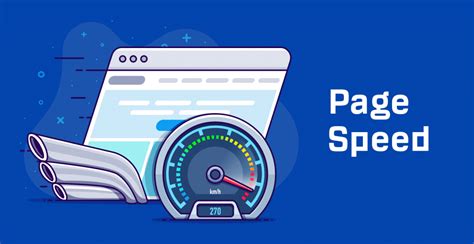As an online business owner, you understand the importance of standing out from the crowd and attracting potential customers to your website. However, with countless websites competing for attention on search engines, achieving a high ranking can be an uphill battle. Fear not, as we provide you with genius techniques that will propel your website's discoverability and increase its reach to potential customers.
Discover the power of optimizing your website's search engine ranking without breaking a sweat. Learn how to craft remarkable content that captivates both search engines and users alike. Unleash the potential of your website by implementing enhanced metadata techniques and driving organic traffic to your virtual doorsteps. With our expert tips, your website will soon become a magnet, unparalleled in its visibility and reputation.
Are you ready to outshine your competitors and take your online presence to soaring new heights? Dive into the world of backlinks and witness the empowering effect they have on your website's search engine ranking. Embrace the use of structured data and enrich your website's content with valuable information that will leave search engines begging for more. Together, we will revolutionize your website's search engine ranking and establish your business as a force to be reckoned with in the vast online landscape.
Research and analyze relevant keywords

Understanding the significance of comprehensive keyword research and analysis is crucial for optimizing your website's visibility in search engine results. By identifying and utilizing relevant keywords, you can effectively enhance your website's online presence and attract targeted organic traffic.
Identifying relevant keywords:
Begin by brainstorming potential keywords and phrases that are closely related to your website's content and target audience. Consider incorporating synonyms and variations to cover a broader range of search terms. It is advisable to use a combination of general and more specific keywords to ensure a diverse and comprehensive approach.
Analyzing keyword competitiveness:
Once you have a list of potential keywords, it is essential to assess their competitiveness. This involves evaluating the search volume and competition for each keyword. Tools like Google Keyword Planner, SEMrush, and Moz can provide valuable insights into the search volume, difficulty, and competition level for specific keywords. Analyzing keyword competitiveness will help you prioritize and focus on keywords that offer the best optimization opportunities.
Considering long-tail keywords:
In addition to general keywords, long-tail keywords play a significant role in enhancing your website's search engine ranking. Long-tail keywords are longer and more specific keyword phrases that tend to have lower competition. By incorporating long-tail keywords into your website's content, you can attract highly targeted traffic, leading to higher conversion rates.
Monitoring and adapting:
It is crucial to monitor the performance of the keywords you have optimized for your website. Regularly track keyword rankings and analyze the traffic they drive to understand their impact. Based on the results, make necessary adjustments to your keyword strategy to ensure optimal performance and better search engine visibility.
By conducting thorough research and analysis of relevant keywords, you can create an effective SEO strategy that drives organic traffic and improves your website's search engine ranking. Remember to stay updated with the latest trends and adapt your keyword strategy accordingly to stay ahead of the competition.
Enhance your website's visibility through content optimization
Creating high-quality and relevant content is imperative for improving your website's online presence and attracting more organic traffic. By optimizing your website's content, you can ensure that search engines recognize its value, relevance, and authority, leading to a higher ranking in search engine results.
Keyword research: Conduct thorough keyword research to identify the most relevant and frequently searched terms related to your business or industry. Incorporate these keywords naturally into your content to optimize it for search engines.
Content organization: Organize your website's content in a logical and easy-to-navigate structure. Use heading tags (<h1>, <h2>, etc.) to highlight important sections and include relevant keywords in the headings.
Compelling titles and meta descriptions: Craft compelling titles for your web pages and meta descriptions that accurately describe the page's content and entice users to click. Incorporate relevant keywords in these elements to improve search engine visibility.
Optimized page URLs: Make sure your page URLs are concise, descriptive, and include relevant keywords. Avoid using numbers or symbols in your URLs, as they can make it difficult for search engines and users to understand the page's content.
Valuable and informative content: Focus on creating unique, valuable, and informative content that answers users' queries or solves their problems. Use a variety of content formats, such as text, images, infographics, or videos, to engage users and keep them on your website longer.
Internal linking: Incorporate internal links throughout your content to improve website navigation and help search engines discover and crawl your pages more effectively. Ensure that the anchor text used for internal links includes relevant keywords.
Optimized images: Optimize your website's images by compressing them for faster loading times and adding descriptive alt tags. Search engines also consider image content when determining the relevance of a web page, so including relevant keywords in the file name and alt text can improve visibility.
Regular content updates: Regularly update and refresh your website's content to reflect the latest industry trends and developments. Fresh and up-to-date content signals to search engines that your website is actively maintained, which can improve its ranking.
User-friendly experience: Ensure that your website is mobile-friendly, loads quickly, and provides a seamless user experience across different devices and screen sizes. A positive user experience contributes to higher engagement and better search engine rankings.
Monitor analytics: Regularly analyze your website's performance using tools like Google Analytics. Monitor important metrics such as organic traffic, bounce rate, and time on page to identify areas for improvement and adjust your content optimization strategy accordingly.
By implementing these content optimization techniques, you can improve your website's search engine visibility, attract more organic traffic, and ultimately enhance your online presence.
Enhance the Loading Speed of Your Website

In today's digital age, the speed at which a website loads can significantly impact its success. Visitors have little patience for slow-loading pages and will quickly abandon a website that fails to meet their expectations. Therefore, it is essential to optimize your website's loading speed to ensure a seamless user experience and improve your online presence.
One crucial factor that affects the loading speed of your website is the size and complexity of its elements, such as images and scripts. Optimizing these elements by compressing images and minifying code can help reduce the overall file size, resulting in faster loading times. Additionally, utilizing browser caching can also improve loading speed by storing certain web elements locally, allowing them to be loaded more quickly on subsequent visits.
Another effective way to enhance your website's loading speed is by minimizing the number of HTTP requests. Every time a visitor accesses your website, their browser sends a request for each file that needs to be loaded, including images, stylesheets, and scripts. By combining multiple files into a single one and using CSS sprites to consolidate multiple small images into one larger image, you can greatly reduce the number of HTTP requests, consequently decreasing loading times.
Furthermore, the usage of Content Delivery Networks (CDNs) can significantly improve your website's loading speed. CDNs are networks of servers located in various geographic locations that help deliver your website's content more efficiently. By distributing your website's files across multiple servers, CDNs can serve content from the server closest to the visitor, reducing the distance the data must travel and enhancing loading speed.
Lastly, it is crucial to regularly monitor and optimize your website's loading speed. There are various online tools available that can measure your website's performance and provide insights into areas that need improvement. By regularly analyzing your website's loading speed, you can identify and rectify any issues promptly, ensuring the best possible experience for your visitors.
Improving your website's loading speed is not only beneficial for user experience but also plays a significant role in search engine optimization. Search engines like Google consider loading speed as a ranking factor, prioritizing websites that offer fast and efficient browsing experiences. Therefore, by enhancing your website's loading speed, you can not only attract and retain more visitors but also improve your search engine ranking and increase your online visibility.
Maximize Your Website's Discoverability with Meta Tags and Meta Descriptions
In order to boost the visibility of your website on search engines, it is crucial to utilize the power of meta tags and meta descriptions. These strategically crafted elements play a significant role in attracting the attention of both search engine algorithms and potential visitors to your site.
Meta tags serve as concise snippets of information that provide search engines with a brief overview of your webpage's content. By including relevant keywords and phrases in your meta tags, you can effectively signal to search engines what your webpage is all about. This helps search engines determine the relevancy of your webpage to a particular search query, increasing the likelihood of your webpage ranking higher in search results.
Additionally, meta descriptions offer an opportunity to enhance the click-through rate from search engine result pages. A well-crafted meta description provides a persuasive summary of the webpage's content, enticing users to click on your link instead of others. It is important to optimize meta descriptions by carefully choosing compelling language, incorporating relevant keywords, and keeping them within the recommended character limit.
By incorporating well-crafted meta tags and meta descriptions into your website, you can greatly improve its search engine discoverability and attract more organic traffic. Remember, these elements serve as a snapshot of your webpage's content, making it crucial to make them informative, engaging, and optimized for search engines.
Boost Your Website's Visibility with High-Quality Backlinks

Increase your online presence and improve your website's search performance by incorporating high-quality backlinks. These powerful connections help search engines recognize the credibility and authority of your website, ultimately leading to higher organic rankings.
When it comes to building backlinks, it's essential to focus on quality rather than quantity. Instead of obtaining numerous low-quality links, invest your efforts in acquiring a smaller number of high-quality backlinks. These links should be from reputable and relevant sources related to your industry or niche.
One effective way to obtain high-quality backlinks is through outreach and relationship building. Identify influential websites, blogs, or social media accounts in your field and reach out to them with personalized and compelling content. By providing valuable resources or unique insights, you can attract their attention and encourage them to link back to your website.
Another strategy is to create outstanding, shareable content that naturally attracts backlinks. By producing informative articles, interactive infographics, or engaging videos, you can increase the chances of other websites linking to your valuable resources. Additionally, promoting your content through social media and email marketing can help amplify its reach and encourage more backlinks.
Incorporating guest blogging is another effective way to secure high-quality backlinks. Identify authoritative websites that accept guest contributions and propose unique, well-researched content that aligns with their audience's interests. This not only allows you to showcase your expertise but also provides an opportunity to include a link back to your website within your author bio or the body of the article.
Remember that while building backlinks is crucial for improving your search engine ranking, it's equally essential to monitor and maintain your link profile regularly. Regularly assess the quality of your backlinks, disavow any unwanted or spammy links, and continue to build relationships with reputable websites to strengthen your online presence.
By focusing on building high-quality backlinks, you can establish your website as a trustworthy and authoritative source in your industry, ultimately driving more organic traffic and enhancing your search engine ranking.
Keeping Your Website Content Fresh and Updated
In the dynamic world of online presence, it is crucial to regularly refresh and publish new content on your website. The consistent creation and publication of fresh and relevant content not only engages and attracts visitors but also improves the search engine optimization (SEO) of your website. Search engines reward websites that offer new and valuable content to users, resulting in higher rankings and increased visibility.
| Benefits of Regularly Updating Your Website |
|---|
| Increased User Engagement |
| When you consistently update your website with high-quality content, visitors are more likely to stay longer and explore multiple pages. Fresh content grabs their attention, creates a sense of credibility, and encourages them to return for more updates, resulting in higher user engagement. |
| Improved SEO Performance |
| Search engines prioritize websites that regularly provide valuable and up-to-date information. By updating your website frequently, you signal to search engines that your website is active and relevant. This can lead to improved search engine rankings, increased organic traffic, and a higher chance of attracting new visitors. |
| Establishment of Authority |
| Consistently updating your website with fresh content helps establish your authority and expertise in your industry. By sharing insightful articles, informative blog posts, or helpful guides, you position yourself as a reliable source of information. This can help build trust with your audience and turn them into loyal followers or customers. |
| Stay Ahead of Competitors |
| Regularly updating your website ensures that you stay ahead of your competitors. By offering the latest news, insights, or trends, you demonstrate your commitment to staying relevant and provide a reason for users to choose your website over others. This can give you a competitive edge in your industry. |
Conclusion:
Regularly updating and publishing fresh content is essential for enhancing your website's search engine ranking and overall performance. By consistently providing valuable and up-to-date information to your audience, you can increase user engagement, improve SEO performance, establish authority, and stay ahead of your competitors. Investing time and effort in creating and updating content will not only benefit your website's visibility but also contribute to a positive user experience and long-term success.
FAQ
What are some effective tips for improving my website's search engine ranking?
There are several strategies you can implement to enhance your website's search engine ranking. First, optimize your website's content by incorporating relevant keywords in your titles, headings, and body text. Additionally, regularly update your website with fresh and high-quality content. Another crucial aspect is building backlinks from reputable and relevant websites. Lastly, ensure that your website is mobile-friendly and has a fast loading speed.
How important is keyword optimization for improving search engine ranking?
Keyword optimization plays a vital role in enhancing your website's search engine ranking. By targeting specific keywords that are relevant to your content, you increase the chances of search engines recognizing your website as a valuable and authoritative source. Properly incorporating keywords in your titles, headings, and throughout your content can significantly improve your website's visibility in search engine results.
What role does the quality of content play in search engine ranking?
The quality of your website's content is incredibly important for its search engine ranking. Search engines aim to provide users with the most relevant and valuable information, so having well-written and informative content can increase the likelihood of search engines ranking your website higher. Engaging content that satisfies user search intent and answers their queries can lead to improved user experience and boost your website's visibility in search engine results.
Is it essential to build backlinks to improve search engine ranking?
Building backlinks is indeed crucial for improving your website's search engine ranking. Backlinks serve as votes of confidence from other websites, indicating that your website is reputable and authoritative. However, it's important to focus on acquiring high-quality backlinks from relevant and trustworthy sources. Quality is more important than quantity when it comes to backlinks, so prioritize building a strong backlink profile rather than simply aiming for a high number of links.
How does having a mobile-friendly website affect search engine ranking?
Having a mobile-friendly website is essential for improving your search engine ranking. With the increasing use of mobile devices, search engines prioritize websites that provide a seamless user experience across different devices. A mobile-friendly website ensures that users can access and navigate your content easily on their smartphones or tablets. Mobile-friendliness not only enhances search engine ranking but also contributes to a positive user experience, which can lead to higher engagement and conversions.
What are some effective strategies for improving my website's search engine ranking?
There are several strategies that can help improve your website's search engine ranking. Firstly, focus on creating high-quality and relevant content that provides value to your audience. Utilize keywords in your content that are relevant to your industry and target audience. Another important aspect is optimizing your website's meta tags, title tags, and headers with keywords. Additionally, building high-quality backlinks from reputable websites can greatly enhance your search engine ranking.



